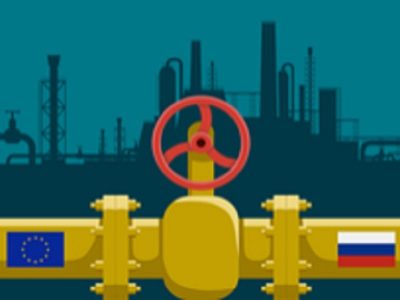High Fuel Prices Likely to Kill More Europeans Than Fighting in Ukraine. The Economist

All Global Research articles can be read in 51 languages by activating the Translate Website button below the author’s name.
To receive Global Research’s Daily Newsletter (selected articles), click here.
Follow us on Instagram and Twitter and subscribe to our Telegram Channel. Feel free to repost and share widely Global Research articles.
First published on November 30, 2022
***
That the economic sanctions resulting from the invasion of Ukraine affect Europe more than Russia is an annoying fact. But now a recent study by The Economist suggests that because of high fuel prices, the additional death toll in Europe in the coming winter could exceed the number of soldiers killed in combat in Ukraine so far. Food for thought.
Before the war, Russia supplied about 40 percent of the European Union’s total gas consumption. In response to the war and in order to reduce dependence on Russian gas, Ukraine and Poland have shut down some pipelines bringing gas from Russia to Western Europe.
Countries, such as Finland, Bulgaria and Poland, that were unwilling to pay for their gas in rubles were disconnected by Russia. In addition, the maintenance required to keep the important Nord Stream I pipeline at full capacity was also compromised.
The sharply reduced gas supply, which for now cannot be fully offset by imports from elsewhere, has sent gas prices and indirectly electricity prices in Europe skyrocketing.
Due to the very mild autumn and because Europe has built up a large gas stock, market prices have meanwhile fallen compared to their peak in the summer. Yet the average price for gas today is almost two and a half times as much as in the period 2000-19. For electricity, it is almost double.
And now winter is upon us. It is a well-known phenomenon that more people die in winter, because of the cold, than in summer. In both Europe and the US, the number of deaths is about 20 per cent larger on average.
In the past, energy prices had little or no impact on excess mortality, because price fluctuations were very small. But now the cost increases are remarkably large and therefore a much greater impact is expected.
To calculate that impact, The Economist has built a statistical model. Besides the price of energy, there are three other factors that cause the number of extra deaths: the most important is how severe the winter is, in addition to that, the severity of the flu season (which is partly determined by how cold it is) and, finally, the compensation of the governments to households for absorbing the price hikes.
High fuel prices can exacerbate the effect of low temperatures on deaths by discouraging people from using heating and making people more exposed to cold. The same applies significantly to the government’s support to households meant to absorb the energy shock.
According to The Economist’s model, the “firm conclusion” is that the impact “will prove highly potent” and the death toll “could exceed the number of soldiers who have died so far in combat”.
If energy prices remain at current levels, about 147,000 more people in Europe would die in a typical winter than under a situation with “normal” prices. With mild temperatures – assuming the warmest winter of the past 20 years for each country – this figure drops to 79,000. In a severe winter, using the coldest winter for each country since 2000, the extra excess mortality rises to 185,000.
Supposedly, about 25,000 to 30,000 military personnel on both sides died in the war and another 6,500 Ukrainian civilians were killed. In total, this is less than in the best-case scenario from The Economist’s model.
The magazine notes that the effect can vary greatly from country to country. In countries that have set maximum prices or a maximum bill, there will be hardly any additional mortality or the mortality rate may even fall. This is the case for France, Britain, Spain and Austria, among others.
Much larger numbers of deaths are predicted in countries where government support is (for now) low, such as Italy, Estonia and Finland. The Economist does not explicitly mention Belgium, the country where I live. In terms of government support, the country is somewhere between the two extremes.
In the long run, the sanctions against Putin will most certainly weaken the Russian economy. But so far that is absolutely not the case. Expected revenues from Russian energy exports will be a third higher this year than last year.
It is mainly the European countries that are shooting themselves in the foot with the sanctions. Recent data shows that the Russian ‘current activity indicator’ (measure of economic activity) is higher than in other major European countries.
As a result of high energy prices, many companies may have to close or relocate to other regions, where energy costs are lower. Moreover, to combat inflation, which in turn is mainly due to high energy prices, we are almost certainly heading for a full-blown recession in Europe.
In addition to the economic self-flagellation, the toll in human lives in Europe will be extremely high. It may be time to think deeply about the sense or nonsense of the economic sanctions against Russia.
*
Note to readers: Please click the share buttons above or below. Follow us on Instagram and Twitter and subscribe to our Telegram Channel. Feel free to repost and share widely Global Research articles.
Marc Vandepitte is a Belgian economist and philosopher. He writes on North-South relations, Latin America, Cuba, and China. He is a regular contributor to Global Research.
Featured image is from OneWorld

